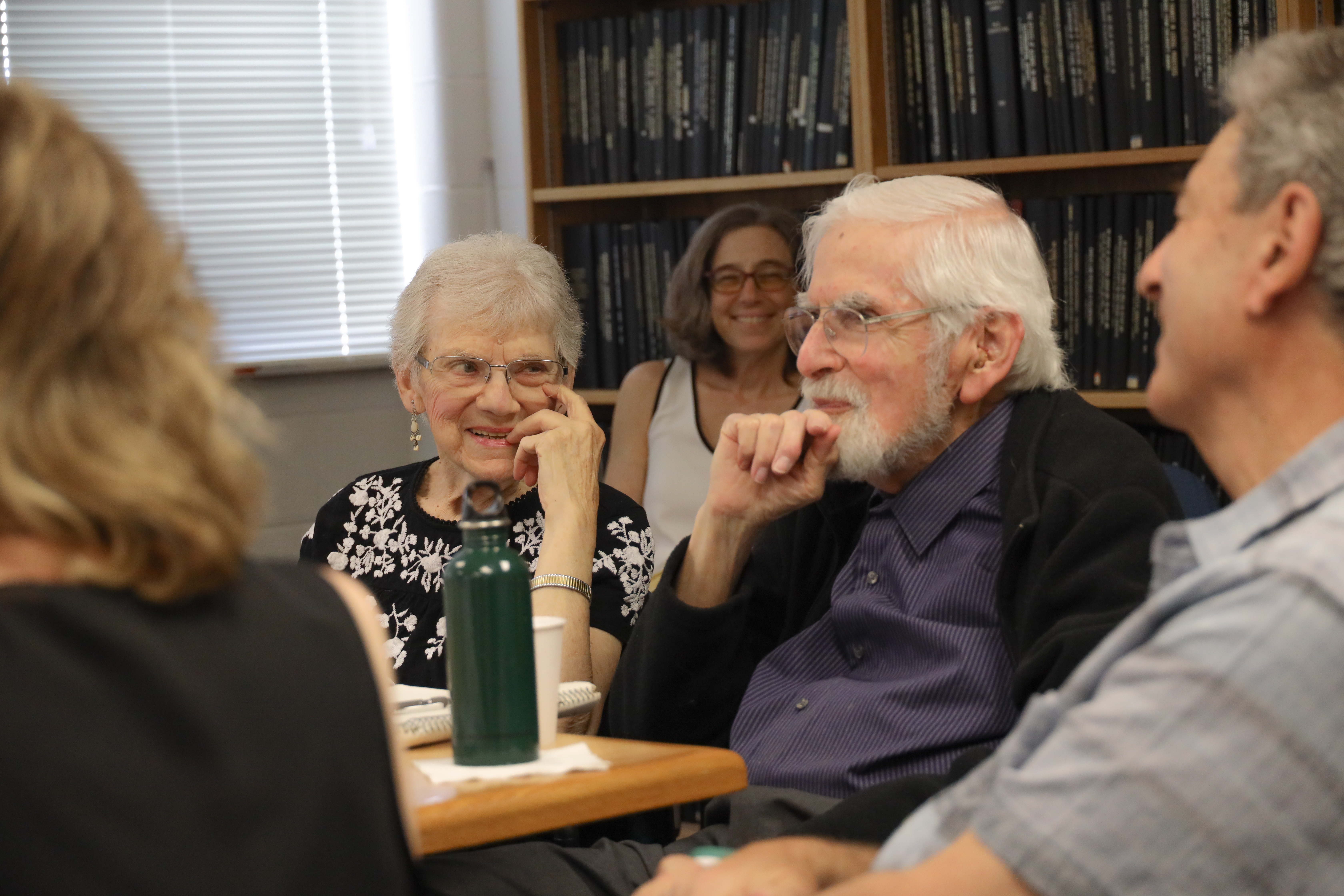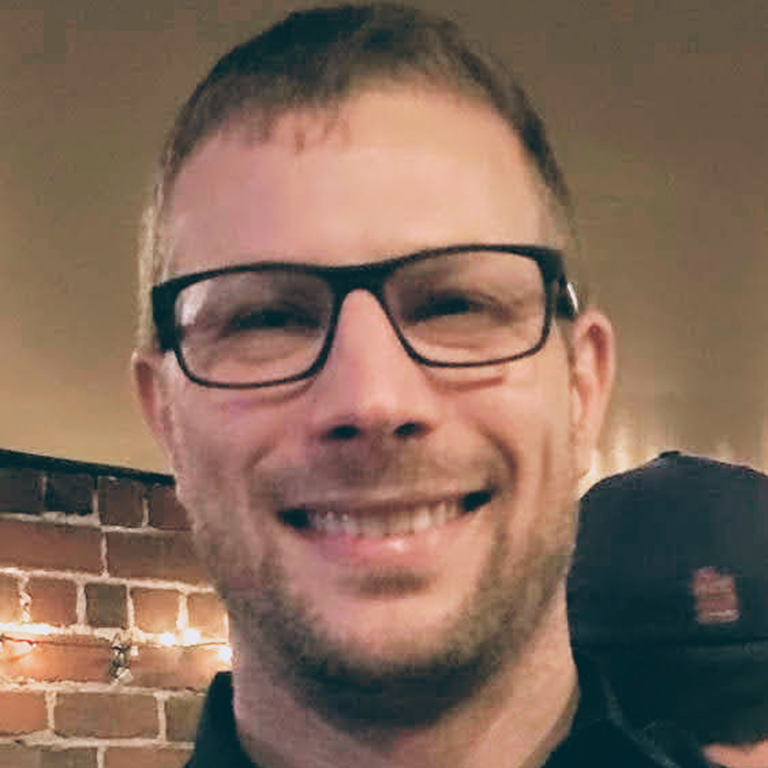“Welcome, Hellerites.” So began PBS Chair Mike Jones in his opening remarks to the group of 21 former, mostly Ph.D. students of PBS Professor Emeritus Kenneth Heller, who gathered at the department with Ken, his wife, Audrey, and their children Caroline, Dan and Emily. For 36 years, Heller had a long and prominent career as a researcher and professor of psychology. He also played a significant role in laying the foundations for the strong clinical science program we have today and was especially influential in shaping the Clinic, of which he served as director for a decade.
Following his retirement, Heller continued to work for 25 more years. He also made an important philanthropic contribution to PBS, establishing the Kenneth Heller Minority Student Support Fund, to support the training of groups underrepresented in the field of psychology.
As Jones noted, “Ken identified, decades ago, the barriers being faced by underrepresented minority graduates in our field, and long before this became a public focus, he was doing something about it. With the Ken Heller Minority Student Support Fund, Ken matches any funds that are contributed by alumni. We use those funds every year to support underrepresented students for career development and training that would otherwise not be possible. It has been absolutely impactful for dozens of minority students.”
Yet in addition to his remarkable academic and philanthropic legacy, “the real measure of his influence is in all of you,” Jones observed, referring to the 21 alumni present and some who could not participate, whose degrees range from 1968 to 2003.




 The College of Arts
The College of Arts